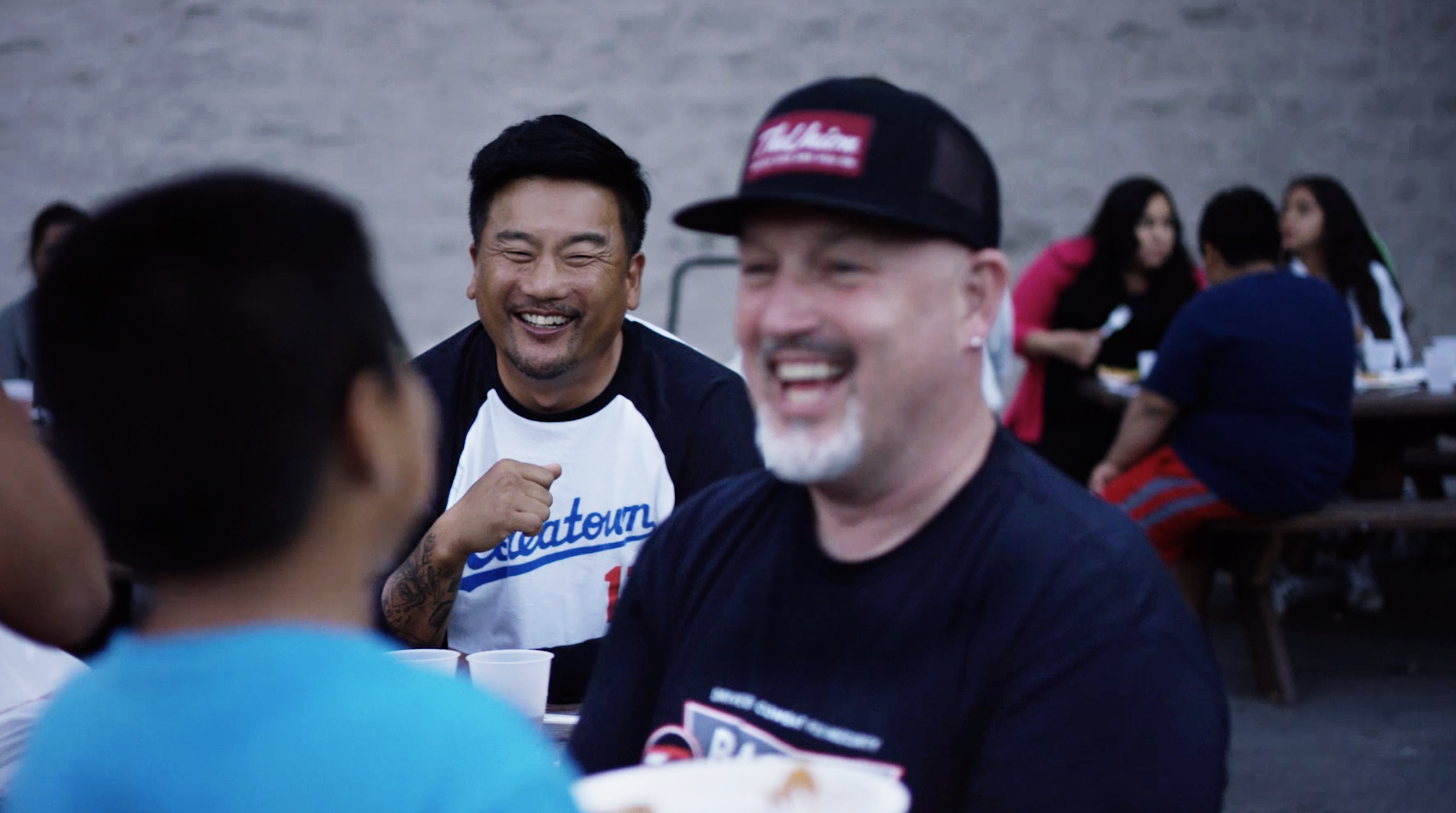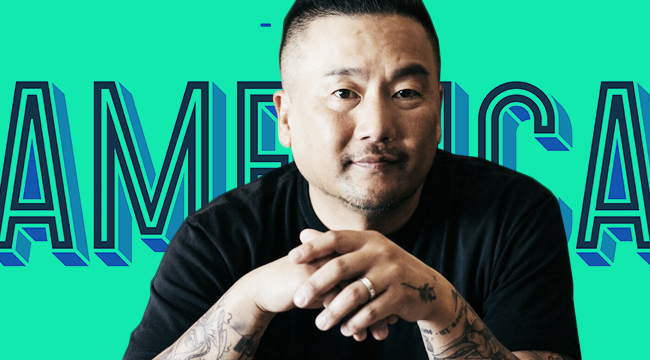
Chef Roy Choi has helped redefine what American food is. He’s challenged definitions, pushed boundaries, and turned his hustle into a brand. Choi is credited helping to set off the entire food truck movement from the back of his Kogi truck on the streets of Los Angeles. The fusion of Korean flavors with Mexican delivery systems (namely, the tortilla) was a shot across the bow of conformity in the food world.
Choi, a highly trained chef, was working in professional kitchens before he left it all behind to cook for regular folks on the streets of L.A. That decision would become the inciting incident in his origin story — he’s now known as the acclaimed chef who only cares about feeding the masses. This ethos led to him throwing his culinary weight behind Locol, which hired local people in struggling neighborhoods and gave them a chance to access healthier fast food at affordable price points. So it came as no surprise that when Choi announced a TV show social justice would be front and center in his new food TV show.
We got a chance to chat with Choi about his new series on Tastemade TV and KCET, Broken Bread. The series takes a look at how our food system is failing poor and disenfranchised communities across America and profiles people fighting for better access for all. Watching each episode unfold, it’s clear that Choi truly cares about his subject matter. Talking with the chef yesterday, that passion was on full display.
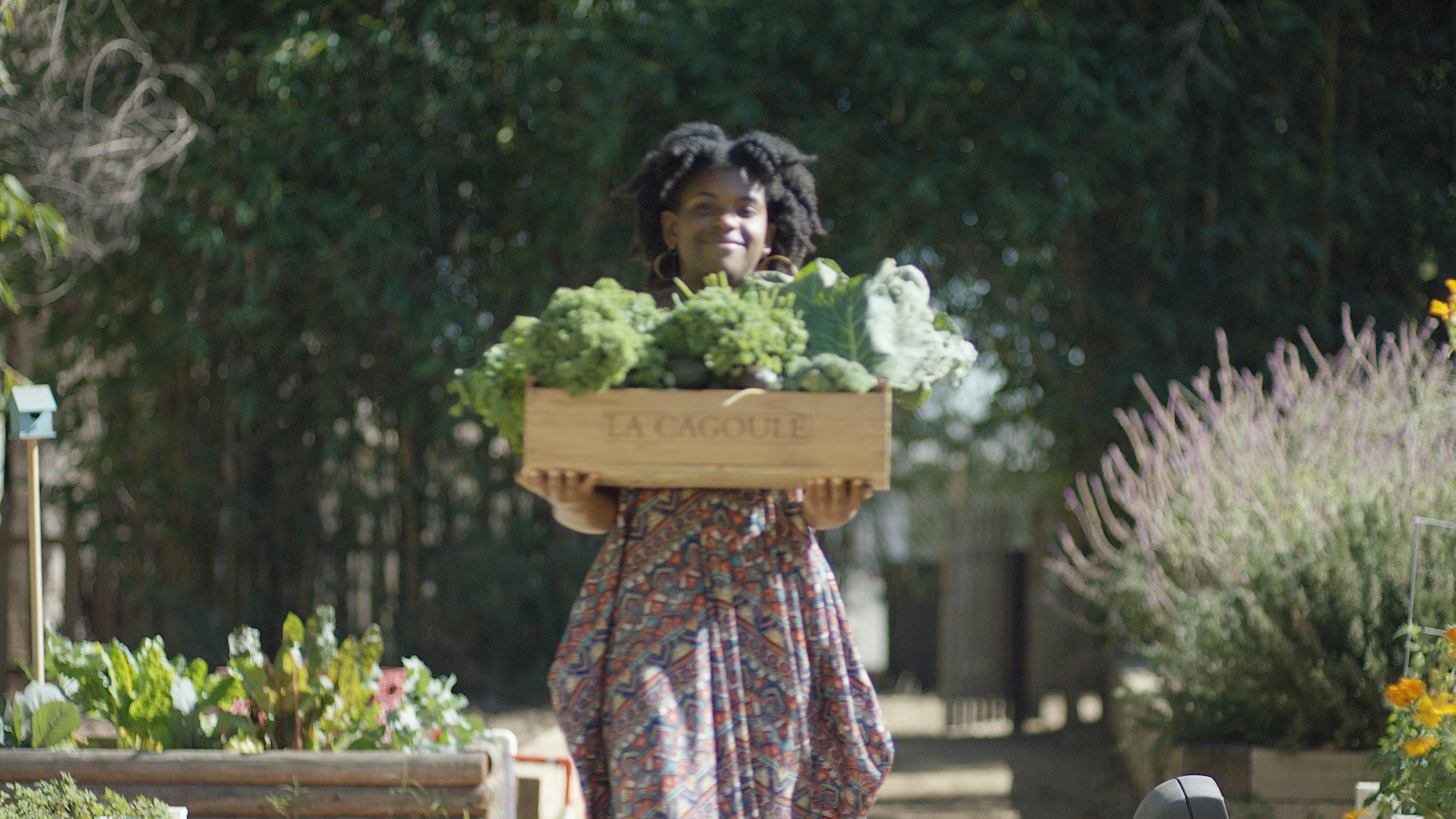
You’ve always been a chef with a social conscience. It’s been part of your MO. Going back beyond Locol, your truck, Kogi, was for people on the streets. Your new show feels like a natural evolution of your life’s work of fighting for the underdog.
I think it’s something that I’ve been working towards my whole life. Before I was a chef or a cook, I was always drawn to inequalities and injustice in life. I marched a lot when I was younger. I supported non-profit organizations. I worked and volunteered when I really had no direction or purpose. When Kogi happened, it crystallized everything for me and I really became the cook of the people on the street. That just continued to lead me more towards, in a way, my destiny.
It gave me a platform to speak about these things.
So, how did Broken Bread come about?
I’ve tried to pitch a lot of shows over the last 10 years. They all revolved somewhere within the atmosphere of social issues in food, but no one was really buying it. I almost gave up, to be honest, and that’s kind of when things really happened. It was at that point where Tastemade and KCET actually approached me with a fully fleshed out show concept that was built around me that dealt with these issues. It was meant to be.
I know this is a cliché, but this a perfect example of it’s always darkest before the dawn, man.
I’m telling you! It was all ready. It was just a matter of me saying “yes.” The show was exactly what I’d been looking for my whole life. They had already greenlit the show. It was exactly what I’d been working, so it was one of those things that was really meant to be.
Hearing that this was ready to go when you came on board, how much input did you have in each episode? What was the next step in actually fleshing out the show?
Once I said yes, we went into pre-production and they had me meet with a director, James Mann. James and I really clicked. We started our pre-production meetings really just using the templates they gave me. Then, what I did, was throw on a bunch of other topics.
Then we continued to stay mindful that people may not know about our broken systems or injustices within our food system, and how that affects a larger society with larger questions about ourselves, as humans. We wanted a show that inspires ourselves and other people. It had to show that even though these problems are huge, the solutions are actually closer and smaller then they might think.
Watching the first episode and trailer, it really feels like you’re trying to cast a wide net throughout differing, or maybe diverse is a better word, American food culture.
We’re just trying to show all humans. We spend so much time dividing each other and finding differences versus finding the similarities or putting ourselves in each other’s shoes.
Whether or not you lived with a community of color living in the inner city that has no access to food, that’s not your fault. But, if you can’t ever sympathize or put yourself in that position, that’s different. Some people have to acknowledge that they somehow got the luck of the draw, whether it was your skin color or what type of wealth you were born into. And it’s how would you react that matters. How would it feel to you if you were born into a life where they were stripping all resources? Or they were flooding your communities with, basically, poison? What would you do if you had no access to healthy food and you were being targeted and killed on these streets?
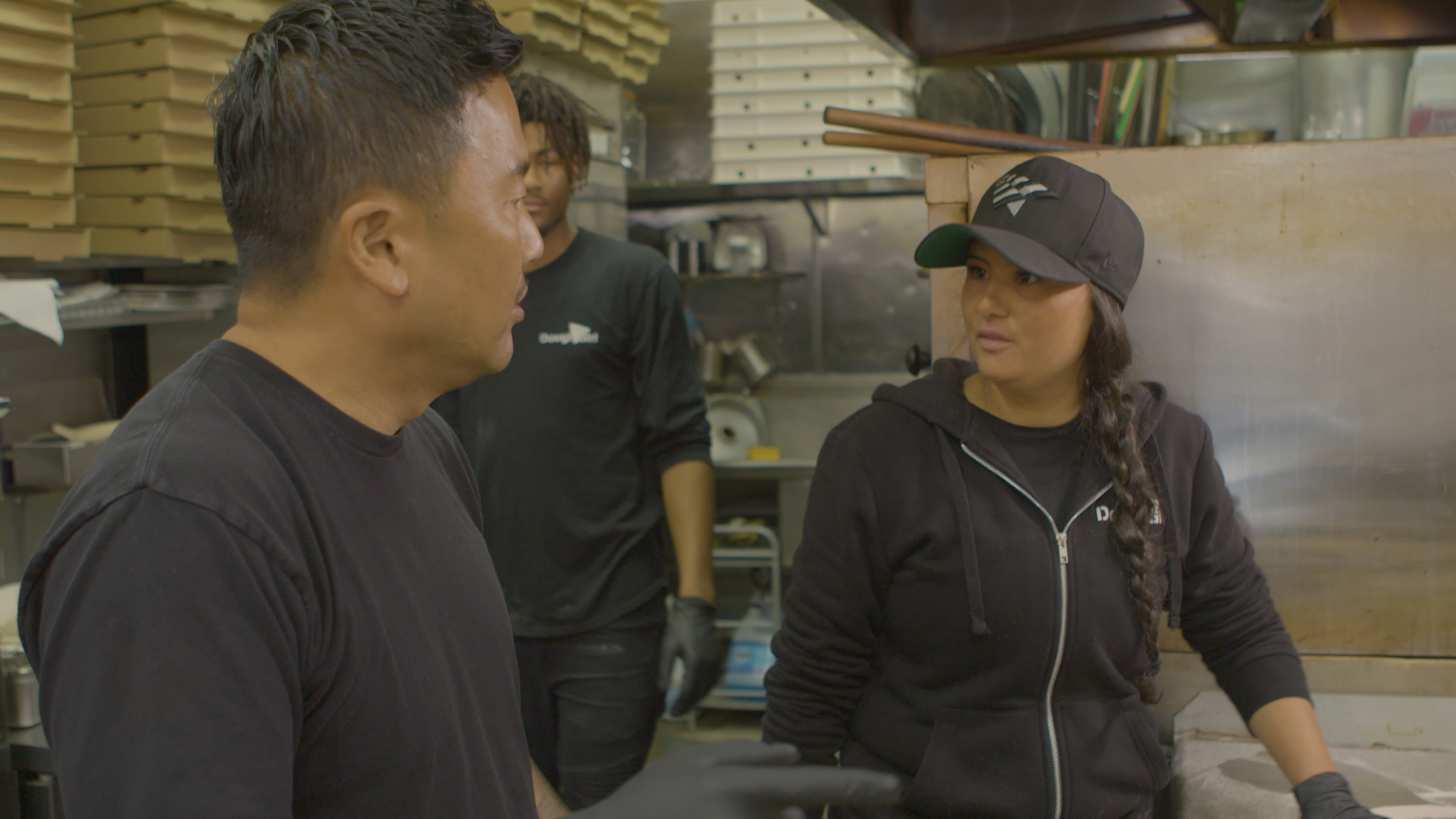
You’re preaching to the choir, brother. I’m from an Indian Reservation so I feel it.
The reservations are one of our deepest, darkest secrets in this country. What the country has done from a food level and a sustainability level and life level … What they’re doing is pumping in drugs, the processed food, all of the sugars and salt. They stocked reservations with that and it created obesity and destruction. It’s one of the things that I hope that in our Broken Bread season two or three we can explore. Talk about some of these elephants in the room that no one wants to talk about, especially on reservations.
Coming from the rez and working with folks in the Indigenous food movement, just finding somebody to talk about it is hard enough. Going back to your show, what you’re doing is offering a hand. You’re offering a basket of bread. You’re offering a chance to sit at the table. I think it’s the right way to go, especially in America where, at the end of the day, man, as you said, we’re all humans.
Are you hoping that by making this show you can get more people into these communities to help or at least getting more money flowing their way? And what do you think is the best path for people who are going to watch this show and want to help these communities? Send money? Go and volunteer? Or just eat at their restaurants?
I think any of the above is great. Even if it’s just a tear that you shed, that means your heart just opened. Then, if there are physical things that come from that, that’s even better.
I think for me, I want to the people we cover and the topics we highlight to have a transfer of love to these topics and people, and I want that idea to be a driver in pop culture in America. In my opinion, if we can make these things a part of pop culture where they become something that drives what we believe is right, then what will happen is those things will naturally become better. Because they will be things that we align ourselves with in our normal, everyday lives.
Where does that start in our normal lives though?
So that’s making sure that elementary school kids can have fresh produce and well-cooked meals versus processed meals then those things will become cool. They will become important. They will become a part of pop culture. There will be more shows supporting these ideas.
There will be more music, more art, more radio programs, more articles, more journalism, and these things will become just a natural standard.
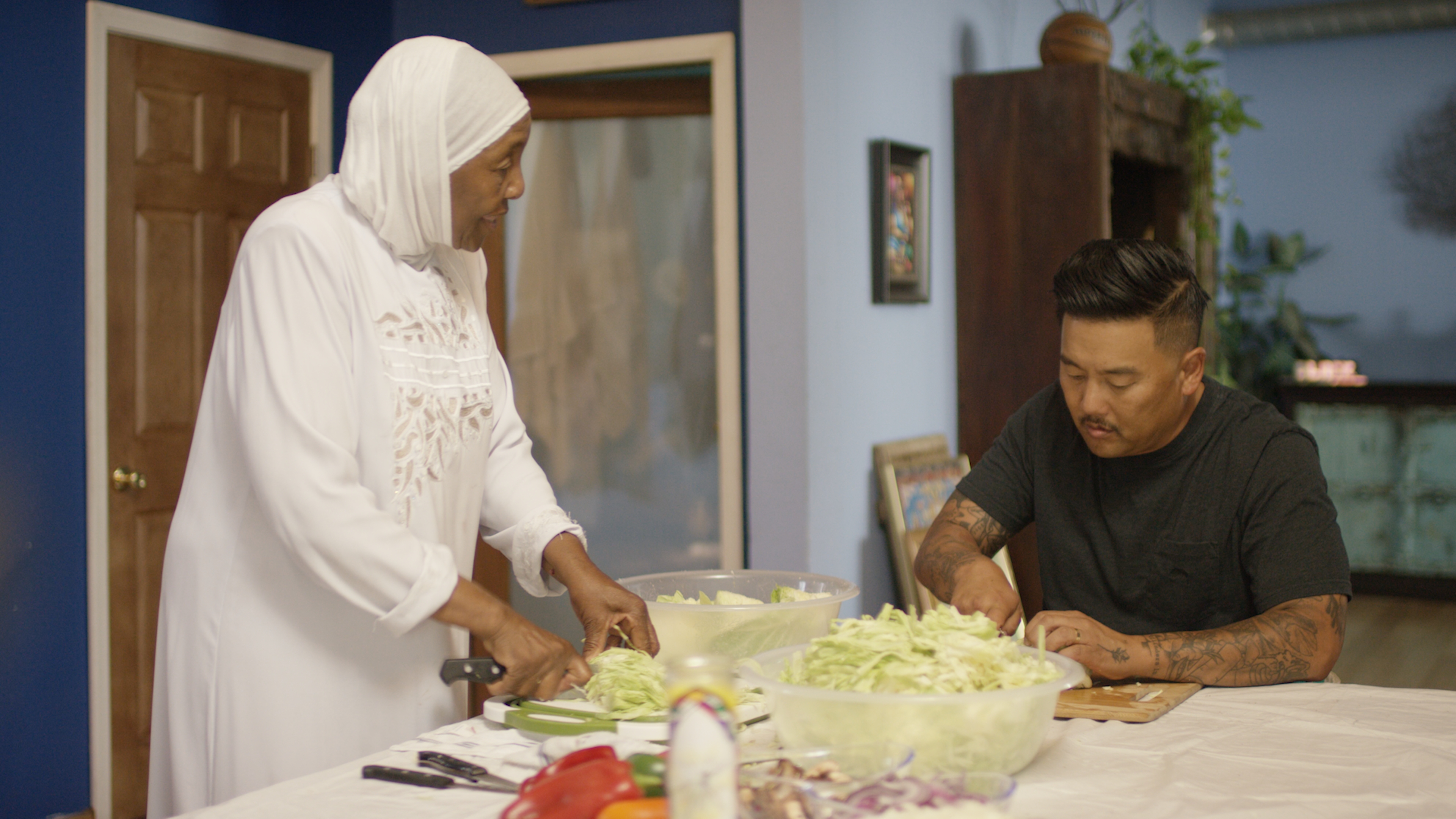
It’s hard with the culture, man, because, you know, you see Cardi B hawking Pepsi. And I can’t help but think she could be hawking something way better than that. Coming from the rez, we grew up thinking that all that processed shit was okay because that’s what pop culture was telling us, constantly.
I address this a little bit in the show. It’s okay to hawk Pepsi or enjoy junk food once in a while, you know? We can’t be fake either. If you really grew up around junk food, then that’s a part of your DNA. The thing that we challenge is if you are going to hawk junk food, you have to balance that with other stuff, you know? You’ve got to show the whole breadth of life. If you want to have a two-liter of Pepsi or Sunkist or whatever, that’s okay. But if that’s the only thing you can access, then I think that’s where the issues start.
I feel that. So you mentioned you’re interested in looking at reservation life and the food systems there. Have you been able to dive into the Indigenous food scene around the L.A. area?
Let’s face it, man, you’re one of the icons of bringing foods together in the Los Angeles area… we could use you.
I think about it all the time. I don’t really know exactly what the pathway is yet. Maybe one of the most productive intersections we could do with Native culture and modern chef or restaurant culture is looking at the idea of foraging and connections to nature. It sucks that for so long the only thing associated with Natives is fry bread. Which is…
It’s a genocide recipe.
It’s a genocide recipe. It’s very much how a lot of other cultural foods become. It’s been turned into this marquee of who you are but it’s really how others interpret who you are. That becomes something that’s handed down, that becomes the norm.
Do you get a chance to forage for Indigenous plants in L.A.?
We haven’t really tapped the knowledge, the spirituality, or the resource of Native lineage to understand how to forage or to make a common belief based around that. So, to me, that would be the next step.
I’ll take you out next time I’m in LA — good luck with the show!
Thanks, Zach.
